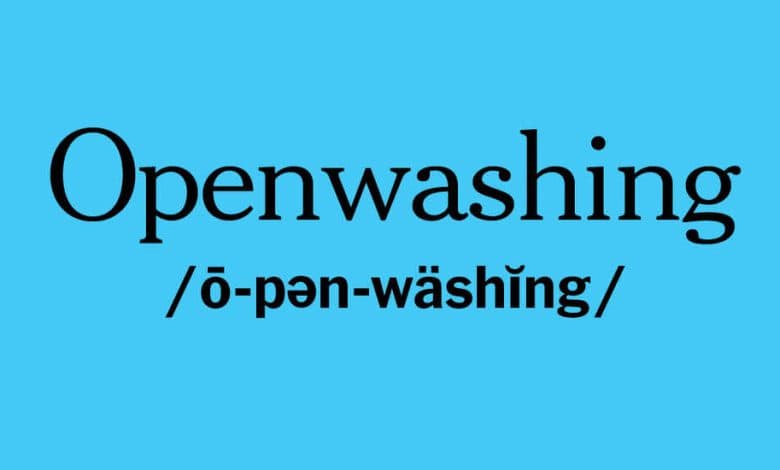Openwashing

SHOP TALK
Openwashing
/ō-pən-wä-shĭng/
An accusation against some A.I. companies that they are using the “open source” label too loosely.

Credit…Luci Gutiérrez
By Sarah Kessler
Shop Talk explores the idioms of the business world: the insider jargon, the newly coined terms, the unfortunate or overused phrases.
There’s a big debate in the tech world over whether artificial intelligence models should be “open source.” Elon Musk, who helped found OpenAI in 2015, sued the startup and its chief executive, Sam Altman, on claims that the company had diverged from its mission of openness. The Biden administration is investigating the risks and benefits of open source models.
Proponents of open source A.I. models say they’re more equitable and safer for society, while detractors say they are more likely to be abused for malicious intent. One big hiccup in the debate? There’s no agreed-upon definition of what open source A.I. actually means. And some are accusing A.I. companies of “openwashing” — using the “open source” term disingenuously to make themselves look good. (Accusations of openwashing have previously been aimed at coding projects that used the open source label too loosely.)
In a blog post on Open Future, a European think tank supporting open sourcing, Alek Tarkowski wrote, “As the rules get written, one challenge is building sufficient guardrails against corporations’ attempts at ‘openwashing.’” Last month the Linux Foundation, a nonprofit that supports open-source software projects, cautioned that “this ‘openwashing’ trend threatens to undermine the very premise of openness — the free sharing of knowledge to enable inspection, replication and collective advancement.”
